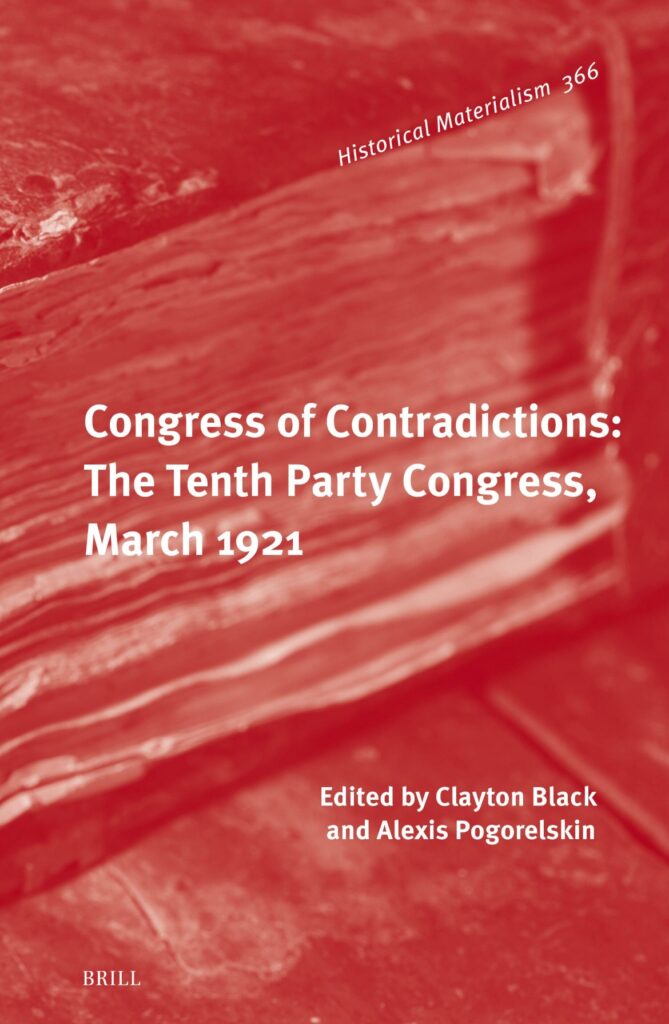Clayton Black and Alexis Pogorelskin
Ten contributors offer new perspectives on this crucial event of the early Soviet period. Several ask, was the congress a real turning point? Some insist that for most of the main figures in the regime, it was just that. While most scholars agree that the congress laid the foundation for the party up to the end of the regime, the volume offers alternative interpretations of an event that helped establish the Soviet state and set the terms for control by the Communist party.
Biographical Note
Clayton Black, Ph.D. (1996), Indiana University, is the Barbara Townsend Cromwell ’55 Associate Professor of History at Washington College in Chestertown, Maryland. His work focuses on the political life of Grigory Zinoviev as well as politics and labour in Leningrad in the 1920s.
Alexis Pogorelskin, PhD. (1976), Yale University, is emerita from the University of Minnesota-Duluth. She was founding editor of the journal The NEP Era and has written numerous articles on Russian liberalism as well as the opposition to Stalin. She has published a monograph entitled Hollywood and the Nazis on the Eve of War: the Case of The Mortal Storm (Bloomsbury Press, 2024).
Readership
This book is particularly relevant for academic institutions, libraries, and specialists in Soviet history and politics, comparative politics and government, interwar history and diplomacy, modern Finland, and the history of Communism, as well as for undergraduate and postgraduate students in these fields.
Table of Contents
Origins and Acknowledgements
Notes on Contributors
A Note on Translation
1 Introduction: Congress of Contradictions
Alexis Pogorelskin
Part 1 Individual Assessments: Major Players at the Tenth Party Congress
2 Zinoviev and the Trade-Union Controversy at the Tenth Party Congress
Clayton Black
3 Kamenev and the Tenth Party Congress: Turning Point in the Biography of an Old Bolshevik
Alexis Pogorelskin
4 Stalin’s Nationality Programme at the Tenth Party Congress
Daniel E. Schafer
5 Trotsky at the Tenth Party Congress: The Party Unarmed?
Ian D. Thatcher
6 Mikhail Tomsky: A Casualty of Compromise in the Trade-Union Debate of 1920–21
Charters Wynn
Part 2 The Tenth Party Congress: Not a Turning Point
7 Why the Tenth Party Congress Was Not a Major Turning Point: Outside Observers on Bolshevik Russia in 1920
Lars T. Lih
8 March 1921: The Turning Point That Failed to Turn?
Christopher Read
Part 3 The Communist Party and the Tenth Party Congress
9 The Workers’ Opposition at the Tenth Party Congress: Opposition in the RCP(b) and the CP(b)U
Barbara Allen
10 The Debate on Party-State Relations at the Tenth Party Congress
Lara Douds
11 Organisational Management of the Tenth Party Congress
Junya Takiguchi
12 Conclusions
Clayton Black
Index

